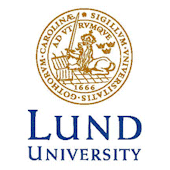My research has focused on how animals cope with environmental challenges. I did my PhD at the University of Liverpool, UK, from 2003 to 2007, investigating the behavioural and physiological mechanisms that allow three-spined sticklebacks to cope with living in low oxygen environments. Following this project, I changed study system to assess the consequences of anthropogenic stressors on the social behaviour and physiology of domesticated animals during a postdoc at the Royal Veterinary College (University of London, UK, 2008–2011).
In 2012 I began a post-doc at the Molecular Ecology and Evolution Lab at Lund University. Here I returned my focus to wild animals, investigating how birds have adapted to cope with the stressors and challenges associated with moving between different regions both through the evolution of migration and colonisation. One of the big challenges of moving into new areas is encountering novel pathogens. I have been investigating what the immune genes of birds can tell us about how they have adapted to cope with this challenge.
More recently, I have expanded this research to study how the evolution of sociality has been influenced by elevated rates of pathogen exposure. More specifically, I am examining how variation in immune genes has influenced the evolution of cooperative breeding in birds. Some birds breed in family groups where offspring remain with their parents and help raise subsequent siblings. This increases the pathogens individuals face in two ways: living in close proximity with conspecifics that increase encounter rates, and living with close relatives that share similar immune genes, facilitating the spread of pathogens. In this project, I am exploring adaptations in the immune system that may have facilitated the evolution of this potentially challenging life-history strategy.
Experience
-
2012–2018Post-doctoral Research Scientist, Lund University
- Article Feed
- Joined


